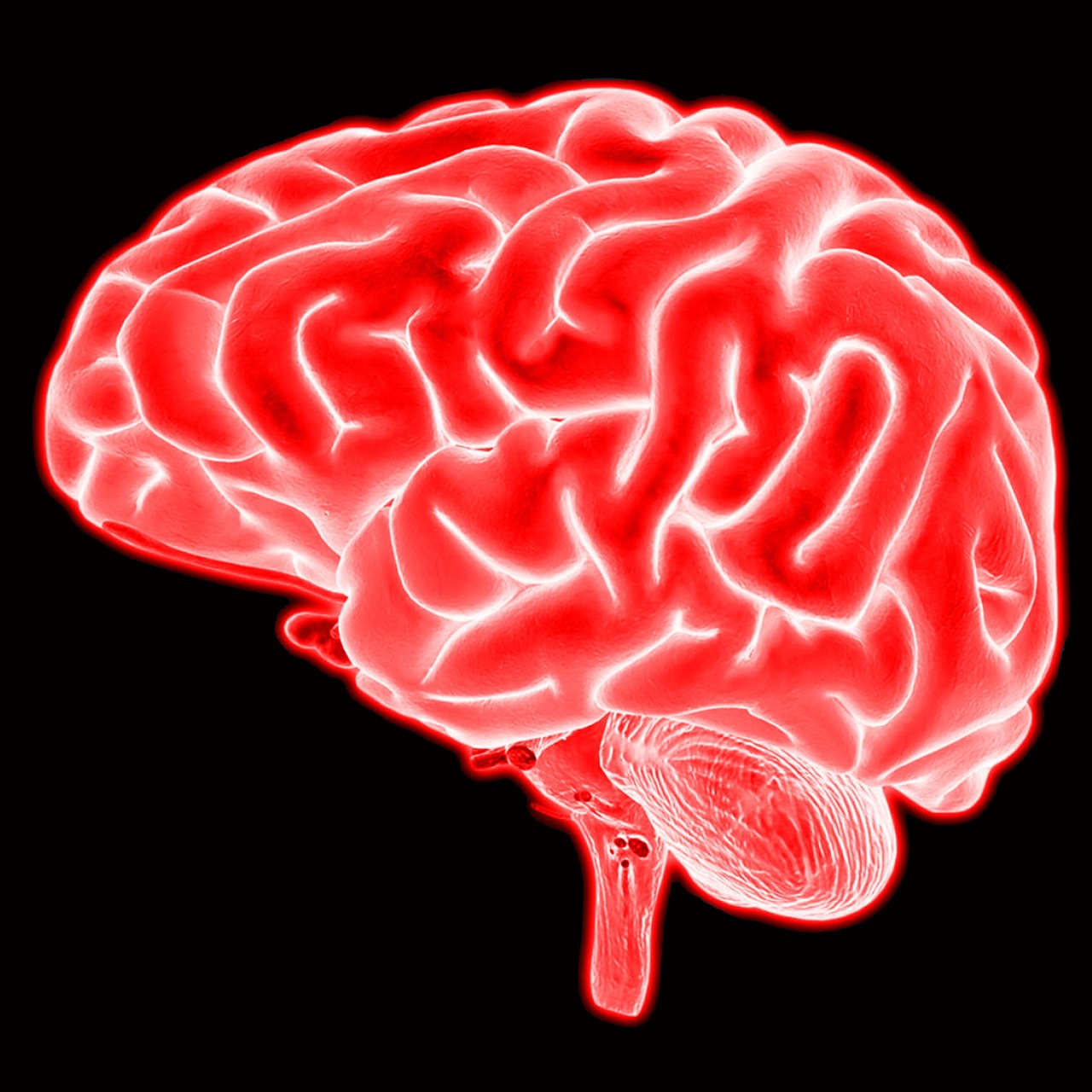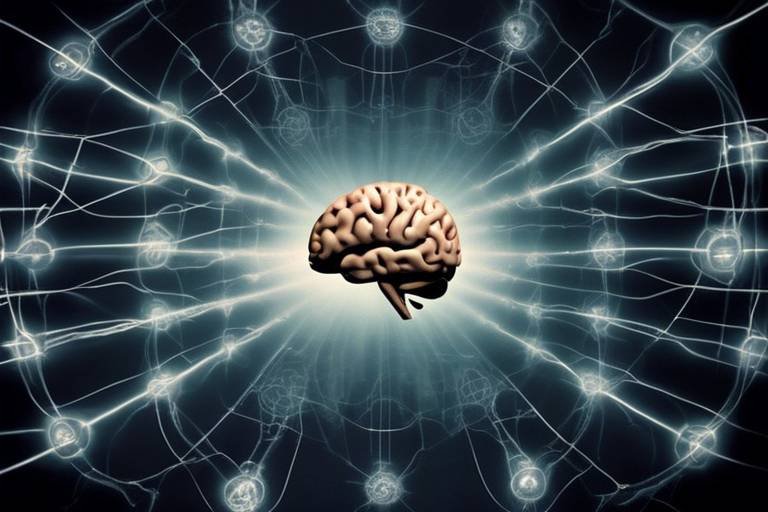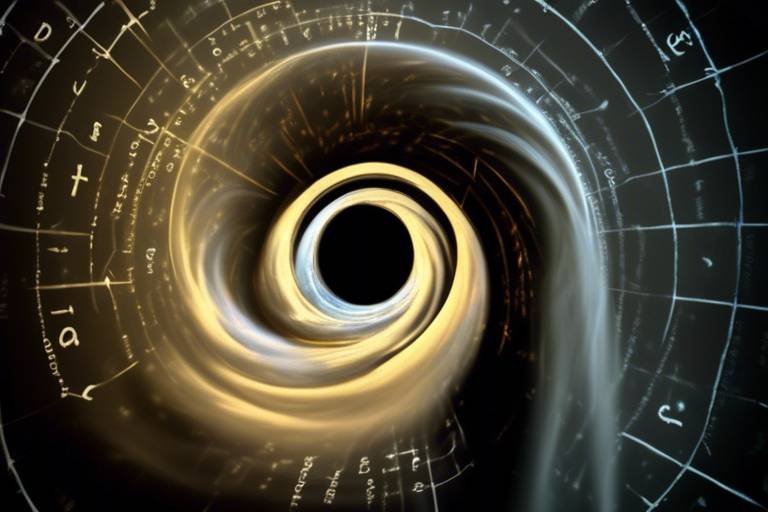Philosophy and Neuroscience - Intersection of Consciousness
The relationship between philosophy and neuroscience is a captivating journey into the depths of human consciousness. As we embark on this exploration, we find ourselves at the crossroads of two disciplines that, while seemingly distinct, converge on one of the most profound questions of existence: what does it mean to be conscious? This intersection not only deepens our understanding of consciousness but also challenges our perceptions of self, identity, and reality itself. Imagine standing on a bridge that connects the abstract musings of philosophers with the empirical findings of neuroscientists; it's a place where thoughts, neurons, and experiences intertwine, shaping our comprehension of the human experience.
At the heart of this discussion lies the concept of consciousness, a phenomenon that has puzzled thinkers for centuries. What is consciousness? Is it merely a byproduct of brain activity, or is it something more ethereal? Different philosophical perspectives offer varying interpretations, while neuroscience provides a framework for understanding the biological underpinnings of our conscious experiences. This rich tapestry of ideas invites us to consider not only how we perceive the world but also how we define our very existence.
In the following sections, we will delve deeper into the nature of consciousness, examining philosophical theories such as dualism, physicalism, and functionalism. Each of these frameworks provides a unique lens through which to view the mind and its intricate relationship with the brain. As we navigate through the historical context of these theories, we will uncover how they have evolved over time and how modern neuroscience continues to inform and challenge these age-old debates.
Moreover, we will explore the significant contributions of neuroscience to our understanding of consciousness. With advancements in brain imaging and other technologies, we can now observe the neural correlates of conscious experience in ways that were once unimaginable. This scientific inquiry raises critical questions about free will, moral responsibility, and the essence of human decision-making. Are our choices truly our own, or are they merely the result of complex neural processes?
As we traverse this fascinating landscape, we will also consider the ethical implications that arise when philosophy and neuroscience intersect. From the treatment of mental health disorders to the development of artificial intelligence, the merging of these fields presents profound moral questions that society must grapple with. What responsibilities do we have towards conscious beings, whether human or machine? How do we navigate the delicate balance between scientific progress and ethical considerations?
In conclusion, the intersection of philosophy and neuroscience offers a rich and dynamic framework for understanding consciousness. As we continue to explore this intricate relationship, we invite you to ponder the questions that arise and engage with the ideas presented. This journey promises to be as enlightening as it is complex, revealing the depths of human thought and the mysteries of our conscious experience.
- What is the main focus of the intersection between philosophy and neuroscience?
The main focus is to explore how both disciplines contribute to our understanding of consciousness, self, and cognition. - How does neuroscience inform philosophical debates?
Neuroscience provides empirical evidence that can support or challenge philosophical theories regarding the mind and consciousness. - What ethical issues arise from merging philosophy and neuroscience?
Ethical issues include concerns about privacy, consent, and the moral implications of artificial intelligence and mental health treatments. - Can machines ever attain consciousness?
This is a debated topic, with various philosophical perspectives offering different viewpoints on the potential for machine consciousness.

The Nature of Consciousness
Consciousness is one of those concepts that seems simple on the surface but dives deep into the complexities of human experience. At its core, consciousness refers to our awareness of ourselves and our environment. Yet, when you start to peel back the layers, you find a rich tapestry of philosophical debates and scientific inquiries that challenge our understanding. Different philosophical perspectives offer various interpretations of consciousness, ranging from the idea that it is a fundamental aspect of existence to the belief that it is merely a byproduct of physical processes in the brain.
Philosophers have long grappled with questions like: What does it mean to be conscious? Is consciousness something that can be measured, or is it an elusive quality that defies quantification? These questions lead to various definitions and theories that attempt to encapsulate the essence of consciousness. For instance, some argue that consciousness is a stream of thoughts and perceptions, while others see it as a state of being that encompasses emotions, intentions, and sensations.
From a scientific standpoint, consciousness is often examined through the lens of neuroscience. Researchers utilize advanced technologies like functional MRI (fMRI) and electroencephalography (EEG) to study brain activity and identify the neural correlates of conscious experience. These studies reveal fascinating insights, such as how different brain regions activate during specific conscious experiences, which can help us understand the intricate workings of the mind.
However, despite these advancements, consciousness remains a challenging subject to fully grasp. The complexity of subjective experience makes it difficult to create a unified theory that encompasses all aspects of consciousness. For instance, consider the phenomenon of qualia, the individual instances of subjective, conscious experience. How do we explain the unique way each person perceives color, taste, or sound? This is where philosophy and neuroscience intersect, each offering valuable insights while also raising further questions.
In summary, the nature of consciousness is a multifaceted topic that straddles the line between philosophy and neuroscience. It invites us to explore not just what consciousness is, but also how it affects our understanding of identity, self-awareness, and the human experience. As we continue to delve into this enigmatic subject, we may uncover new dimensions of what it means to be conscious, pushing the boundaries of both scientific inquiry and philosophical thought.
- What is consciousness? Consciousness is the state of being aware of and able to think about one’s own existence, thoughts, and surroundings.
- How do philosophy and neuroscience intersect? Philosophy provides frameworks for understanding consciousness, while neuroscience offers empirical evidence and insights into how the brain functions.
- Can consciousness be measured? While there are methods to study brain activity related to consciousness, measuring consciousness itself remains a complex challenge.
- What are qualia? Qualia are the subjective, individual experiences of perception, such as the way one experiences color or taste.

Philosophical Perspectives on Mind
The exploration of the mind is one of the most captivating journeys in philosophy. Different philosophical frameworks offer unique insights into the nature of consciousness, each attempting to unravel the intricate tapestry of human experience. Among these frameworks, dualism, physicalism, and functionalism stand out as the primary contenders in the quest to understand the mind. Each perspective not only shapes our understanding of consciousness but also influences how we perceive our own identities and realities.
Dualism, famously championed by René Descartes, posits that the mind and body are fundamentally different substances. This view suggests that mental phenomena are non-physical and cannot be fully explained by physical processes alone. Imagine a stage play where the actors (the mind) perform independently of the stage (the body); they interact, yet their essence remains distinct. This separation raises profound questions about how two such different entities can influence one another, leading to the infamous mind-body problem.
On the other hand, physicalism presents a more unified approach. It argues that everything about the mind can be understood through the physical processes that occur in the brain. As neuroscientific research progresses, physicalists assert that mental states are nothing more than brain states, akin to how a melody is merely the arrangement of sound waves. This perspective challenges the dualist view by suggesting that understanding the brain's mechanics could eventually unlock the mysteries of consciousness itself.
The debate between dualism and physicalism is not merely academic; it has real-world implications for how we view our thoughts, emotions, and even our sense of self. Dualists might argue that our subjective experiences—like the feeling of love or the taste of chocolate—cannot be reduced to mere brain activity. In contrast, physicalists contend that advancements in neuroscience, such as brain imaging and neurochemical studies, provide compelling evidence that these experiences are indeed tied to specific brain functions.
To fully appreciate the dualist perspective, it is essential to look back at its historical roots. Philosophers like Descartes laid the groundwork for dualism in the 17th century, arguing for the existence of a non-material mind that interacts with the physical body. This idea has evolved over centuries, influencing countless discussions about consciousness. The dualist framework has provided a rich soil for philosophical inquiry, leading to questions about the nature of reality, the self, and the potential existence of an immaterial soul.
In recent years, the rise of neuroscience has bolstered the physicalist argument significantly. Researchers have uncovered numerous correlations between brain activity and conscious experiences. For instance, studies using functional magnetic resonance imaging (fMRI) have shown that specific thoughts and feelings correspond to distinct patterns of brain activity. This evidence supports the notion that our mental states are deeply intertwined with our physical brain processes, challenging traditional dualist views.
Another important perspective in understanding the mind is functionalism. This theory defines mental states by their functional roles rather than their internal composition. In other words, it focuses on what mental states do rather than what they are made of. Think of it like a car: it doesn't matter if the car is made of steel or plastic; what matters is how it functions on the road. Functionalism allows for a more flexible understanding of consciousness, accommodating the idea that different systems (including artificial ones) could potentially exhibit similar mental states as humans.
In summary, the philosophical perspectives on the mind—dualism, physicalism, and functionalism—offer a rich tapestry of ideas that continue to shape our understanding of consciousness. As we delve deeper into these theories, we not only gain insights into the nature of our own minds but also confront fundamental questions about what it means to be human.
- What is dualism? Dualism is the belief that the mind and body are separate entities, with the mind being non-physical and the body being physical.
- How does physicalism differ from dualism? Physicalism argues that everything about the mind can be explained through physical processes in the brain, whereas dualism maintains a distinction between the two.
- What is functionalism? Functionalism is a theory that defines mental states by their functional roles, focusing on what they do rather than their internal composition.
- Why is the mind-body problem significant? The mind-body problem raises important questions about the nature of consciousness, identity, and how our thoughts and feelings relate to our physical bodies.

Dualism vs. Physicalism
When we dive into the philosophical waters of consciousness, one of the most heated debates is between dualism and physicalism. At its core, dualism argues that the mind and body are two distinct entities, suggesting that our mental states are not solely dependent on our physical brain. This means that, according to dualists, there’s something more to us than just our biological makeup. Think of it as a classic yin-yang scenario—two separate forces that together create the whole of human experience.
On the flip side, physicalism takes a more grounded approach, positing that everything about the mind can ultimately be explained in terms of physical processes in the brain. In this view, consciousness is merely a byproduct of neural activity. Imagine your brain as a complex computer: every thought, feeling, and experience is just a result of intricate coding and circuitry. This perspective has gained traction, especially with the advances in neuroscience that reveal how brain functions correlate with mental states.
The debate between these two viewpoints is not just academic; it has profound implications for how we understand ourselves. For example, if we accept dualism, we might entertain the idea of an immortal soul or an essence that transcends physical existence. However, if we lean towards physicalism, we may have to confront the uncomfortable notion that our thoughts and emotions are simply chemical reactions and electrical signals. This raises a myriad of questions about identity, free will, and what it truly means to be human.
To illustrate the differences between dualism and physicalism, let’s consider the following table:
| Aspect | Dualism | Physicalism |
|---|---|---|
| Definition | Mind and body are separate entities | Mind is a product of physical processes |
| Key Proponents | René Descartes, Plato | Daniel Dennett, Patricia Churchland |
| Implications for Identity | Possible existence of a soul | Identity tied to brain function |
| View on Free Will | Potential for true free will | Free will is an illusion |
Ultimately, the discussion around dualism and physicalism is a fascinating exploration of what it means to be conscious. It challenges us to reflect on our own beliefs about the mind, our identity, and the nature of reality itself. As we continue to explore this intersection of philosophy and neuroscience, we might find that the answers are as complex and layered as consciousness itself.
- What is dualism? Dualism is the philosophical view that the mind and body are distinct and separate entities.
- What is physicalism? Physicalism is the belief that everything about the mind can be explained through physical processes in the brain.
- Who are some key figures in the dualism vs. physicalism debate? René Descartes is a notable proponent of dualism, while Daniel Dennett is a key figure supporting physicalism.
- What are the implications of these theories for free will? Dualism suggests the possibility of true free will, while physicalism often argues that free will is an illusion.

Historical Context of Dualism
The concept of dualism, which posits a fundamental distinction between the mind and body, has deep philosophical roots that can be traced back to ancient civilizations. One of the most influential figures in this realm is René Descartes, a 17th-century French philosopher who famously declared, "Cogito, ergo sum" ("I think, therefore I am"). Descartes argued that the mind is a non-material entity that exists independently of the physical body, a perspective that laid the groundwork for modern dualist thought. His ideas sparked a wave of philosophical inquiry into the nature of consciousness and its relationship to the physical world.
Throughout history, dualism has been debated and refined by various philosophers. For instance, Plato, in his dialogues, suggested that the soul is immortal and distinct from the body, echoing dualist themes. In contrast, Aristotle presented a more integrated view, proposing that the soul is the form of the body, thus challenging the strict separation that dualism implies. This tension between dualistic and more unified theories of mind persisted throughout the ages, influencing both philosophical and scientific discourse.
Fast forward to the Enlightenment and the Age of Reason, dualism gained traction as a response to the mechanistic view of the universe that emerged during this time. Philosophers like Gottfried Wilhelm Leibniz introduced the idea of pre-established harmony, suggesting that the mind and body, while distinct, operate in a coordinated manner. This idea was a significant attempt to reconcile the dualist perspective with the burgeoning scientific understanding of the world.
In the 19th and 20th centuries, the rise of neuroscience and psychology further complicated the dualistic framework. As scientists began to unravel the complexities of the brain, many philosophers started to question the validity of dualism. The advent of behaviorism and later developments in cognitive science challenged the notion that the mind could be entirely separate from the brain's physical processes. This led to a growing acceptance of physicalism, which argues that everything about the mind can be explained through physical processes in the brain.
Despite these challenges, dualism remains a prominent topic in contemporary philosophy. The mind-body problem continues to provoke discussions about the nature of consciousness, identity, and the essence of human experience. Philosophers today grapple with questions like: Can consciousness be fully understood through neuroscience alone? Or is there something inherently unique about the human experience that defies a purely physical explanation? These inquiries echo the historical debates initiated by thinkers like Descartes, demonstrating that the quest to understand consciousness is as relevant now as it was centuries ago.
In summary, the historical context of dualism showcases a rich tapestry of philosophical thought that has evolved over time. From Descartes' foundational ideas to the modern challenges posed by neuroscience, the dialogue surrounding the mind-body relationship is a testament to humanity's enduring curiosity about the nature of consciousness.
- What is dualism? Dualism is the philosophical belief that the mind and body are fundamentally distinct entities, with the mind being non-physical and the body being physical.
- Who is René Descartes? René Descartes was a French philosopher and mathematician known for his contributions to dualism and his famous declaration, "I think, therefore I am."
- How does dualism differ from physicalism? Dualism posits that the mind and body are separate, while physicalism argues that everything about the mind can be explained through physical processes in the brain.
- What are the implications of dualism for understanding consciousness? Dualism raises questions about the nature of consciousness, suggesting that it may not be fully explainable through physical means, which has significant implications for psychology, neuroscience, and philosophy.

Modern Physicalist Arguments
In the ongoing debate about the nature of consciousness, modern physicalist arguments have gained significant traction, particularly with the rapid advancements in neuroscience. Physicalism posits that all mental states and processes can be fully explained by physical processes in the brain. This perspective challenges traditional dualistic views, which suggest a distinct separation between the mind and body. But what does this mean for our understanding of consciousness? Let’s break it down.
One of the most compelling aspects of modern physicalism is its reliance on empirical evidence gathered from neuroscience. For instance, brain imaging techniques such as functional Magnetic Resonance Imaging (fMRI) and Positron Emission Tomography (PET) scans have allowed scientists to observe the brain in action. These technologies have revealed that specific mental states correlate with distinct patterns of neural activity. For example, when a person experiences joy, certain areas of the brain light up, suggesting a direct connection between emotional experiences and physical brain states. This correlation raises questions about whether consciousness is merely a byproduct of brain activity or if it represents something more profound.
Moreover, the development of neuropsychology has provided insights into conditions such as brain injuries and disorders. Studies on patients with damage to particular brain regions have shown that their cognitive abilities and conscious experiences can be profoundly altered. This supports the physicalist view that mental functions are closely tied to physical brain structures. Consider the case of Phineas Gage, who, after a severe brain injury, exhibited drastic changes in personality and behavior. His story exemplifies how alterations in brain function can lead to significant shifts in consciousness, underscoring the physicalist argument.
Another critical component of modern physicalist arguments is the concept of neural correlates of consciousness (NCC). This idea proposes that for every conscious experience, there exists a corresponding neural state. Researchers are actively seeking to identify these correlates, which could provide a more concrete understanding of how consciousness arises from brain activity. While the search for NCCs is ongoing, preliminary findings suggest that certain neural mechanisms are consistently involved in conscious awareness.
However, the physicalist perspective is not without its critics. Some argue that merely identifying neural correlates does not explain the qualitative aspects of consciousness—what it feels like to experience something. This is often referred to as the "hard problem" of consciousness, a term coined by philosopher David Chalmers. Critics contend that physicalism may overlook the subjective nature of experiences, which cannot be fully captured by physical explanations alone.
To summarize, modern physicalist arguments provide a robust framework for understanding consciousness through the lens of neuroscience. By emphasizing the connection between mental states and brain activity, physicalism challenges us to rethink the relationship between mind and body. As research continues to unfold, the dialogue between philosophy and neuroscience will undoubtedly deepen, paving the way for new insights into one of humanity's most profound mysteries.
- What is physicalism? Physicalism is the philosophical view that everything about the mind can be explained in terms of physical processes occurring in the brain.
- How does neuroscience support physicalism? Neuroscience provides empirical evidence through brain imaging studies that show correlations between mental states and specific neural activities.
- What are neural correlates of consciousness? Neural correlates of consciousness (NCC) are specific brain states that correspond to conscious experiences.
- What is the "hard problem" of consciousness? The "hard problem" refers to the challenge of explaining why and how we have subjective experiences, which physicalism struggles to address fully.

Functionalism and Consciousness
Functionalism is a fascinating theory in the philosophy of mind that offers a unique lens through which we can examine consciousness. Rather than focusing solely on the intrinsic nature of mental states, functionalism emphasizes their roles and functions in a broader system. It's akin to looking at a car not just as a collection of metal and parts, but as a vehicle that serves the purpose of transportation. In the same way, functionalism posits that mental states are defined by what they do, rather than what they are made of.
This perspective aligns closely with the advances in neuroscience, as it allows us to consider how various brain processes contribute to our conscious experiences. For instance, when we think about feeling happy, functionalism prompts us to examine not just the emotion itself, but how that emotion interacts with our thoughts, behaviors, and even physiological responses. This interconnectedness is crucial for understanding how consciousness operates in real-life scenarios.
One of the most compelling aspects of functionalism is its ability to bridge the gap between philosophical inquiry and empirical research. By defining mental states in terms of their causal roles, functionalism opens the door for neuroscientific findings to inform our understanding of consciousness. For example, brain imaging studies have shown how different areas of the brain are activated during specific mental tasks, providing insights into how these activities correlate with our conscious experience.
To illustrate the functionalist approach, consider the following table that outlines different mental states and their corresponding functions:
| Mental State | Function |
|---|---|
| Happiness | Motivates social interaction and enhances overall well-being |
| Pain | Signals danger and prompts protective actions |
| Memory | Facilitates learning and informs future decisions |
| Desire | Drives goal-directed behavior and decision-making |
As we explore the implications of functionalism, it becomes evident that this approach not only enriches our understanding of consciousness but also raises intriguing questions about the nature of mental states. For instance, if mental states can be realized in different physical systems, could machines or artificial intelligence possess consciousness? This question invites a deeper examination of what it means to be conscious and challenges us to rethink the boundaries between human and non-human cognition.
In summary, functionalism provides a robust framework for understanding consciousness by focusing on the roles that mental states play within our cognitive architecture. This perspective not only aligns with our growing knowledge of neuroscience but also encourages ongoing dialogue between philosophy and science. As we continue to unravel the mysteries of consciousness, functionalism stands out as a pivotal theory that emphasizes the importance of function over form, reminding us that the essence of our mental experiences lies in their dynamic interplay.
- What is functionalism in the context of consciousness? Functionalism is a theory that defines mental states by their roles and functions rather than their intrinsic properties.
- How does functionalism relate to neuroscience? Functionalism allows for a connection between philosophical concepts of mind and empirical findings in neuroscience, helping to explain how brain processes contribute to conscious experience.
- Can artificial intelligence be conscious according to functionalism? Functionalism raises the possibility that if machines can replicate the functions of mental states, they might also possess consciousness.

The Role of Neuroscience
Neuroscience plays a critical role in unraveling the mysteries of consciousness, bridging the gap between the biological workings of the brain and the philosophical inquiries into the nature of the mind. As we delve deeper into how our brains function, we find ourselves asking profound questions: What does it mean to be conscious? How do our thoughts and experiences arise from mere neural activity? The answers to these questions are not just academic; they have significant implications for our understanding of human identity and experience.
One of the most exciting aspects of neuroscience is its ability to provide empirical evidence that informs philosophical debates. For instance, brain imaging technologies, such as functional MRI (fMRI) and electroencephalography (EEG), allow scientists to observe brain activity in real-time as individuals engage in various cognitive tasks. These findings help identify the neural correlates of consciousness, which are specific brain regions and networks that contribute to conscious experience. By mapping these correlates, researchers can begin to piece together how subjective experiences emerge from physical processes.
Consider the implications of these discoveries for our understanding of self and identity. Traditionally, concepts of self have been rooted in philosophical discourse, emphasizing the uniqueness of individual consciousness. Neuroscience, however, challenges these notions by suggesting that our identities are not as fixed as we once believed. For example, studies have shown that brain injuries can alter personality traits and decision-making processes, raising questions about the stability of the self. If our identities are so closely tied to our brain's physical state, what does that mean for our understanding of personal continuity and moral responsibility?
Moreover, neuroscience has sparked discussions about free will. As we uncover the neural mechanisms behind decision-making, we are confronted with the unsettling possibility that many of our choices may be predetermined by brain activity rather than conscious deliberation. This revelation can be both liberating and daunting. On one hand, it opens up avenues for understanding human behavior through a scientific lens; on the other, it challenges long-held beliefs about autonomy and moral accountability. Are we merely puppets of our neural circuitry, or is there still room for genuine choice?
In addition to these philosophical implications, neuroscience also raises ethical questions, particularly in the realm of mental health. As our understanding of the brain improves, so too does our ability to treat mental disorders. However, this power comes with a responsibility to ensure that treatments respect the autonomy and dignity of patients. For instance, the use of brain stimulation techniques to alter mood or behavior must be approached with caution, as they can lead to unintended consequences.
Overall, the role of neuroscience in understanding consciousness is multifaceted and complex. It not only enhances our comprehension of the brain's inner workings but also challenges our philosophical assumptions about identity, free will, and morality. As we continue to explore this intersection, we must remain vigilant about the ethical implications of our discoveries, ensuring that advancements in neuroscience serve to enrich human experience rather than diminish it.
- What is consciousness? Consciousness refers to the state of being aware of and able to think and perceive one's surroundings, thoughts, and feelings.
- How does neuroscience contribute to our understanding of consciousness? Neuroscience provides empirical data about brain activity, which helps identify the neural correlates of consciousness and informs philosophical debates about the mind.
- What are the implications of neuroscience for free will? Neuroscience challenges traditional notions of free will by suggesting that many decisions may be influenced by brain processes rather than conscious choice.
- What ethical concerns arise from advancements in neuroscience? Ethical concerns include issues of consent, privacy, and the potential misuse of brain-altering technologies.

Neuroscientific Discoveries
Neuroscience has made remarkable strides in unraveling the complexities of consciousness, shedding light on how our brains function and how these functions relate to our subjective experiences. One of the most significant breakthroughs in this field has been the development of brain imaging technologies, such as fMRI (functional Magnetic Resonance Imaging) and PET (Positron Emission Tomography). These tools allow scientists to observe brain activity in real-time, revealing the neural correlates of conscious experience and providing insights into how different brain regions contribute to our thoughts, emotions, and perceptions.
For instance, studies utilizing fMRI have demonstrated that specific areas of the brain are activated during particular cognitive tasks. This has led to a deeper understanding of how we process information, make decisions, and even experience emotions. The findings from these studies have been pivotal in establishing a connection between brain activity and conscious awareness. Researchers have identified various brain networks associated with consciousness, including the default mode network, which is active during introspective thought and daydreaming, and the salience network, which helps in detecting and responding to significant stimuli in our environment.
Moreover, neuroscientific research has also illuminated the role of neurotransmitters in shaping our conscious experiences. For example, the neurotransmitter dopamine is crucial for motivation and reward processing, while serotonin is linked to mood regulation. Understanding these chemical messengers enhances our grasp of how mental states can fluctuate and how they might be impacted by various factors, such as stress, diet, and medication.
To illustrate the relationship between brain activity and conscious experience, consider the following table that summarizes key neuroscientific discoveries:
| Discovery | Significance |
|---|---|
| Brain Imaging Techniques | Enabled real-time observation of brain activity related to consciousness. |
| Default Mode Network | Associated with self-referential thought and mind-wandering. |
| Salience Network | Involved in identifying important stimuli and emotional responses. |
| Role of Neurotransmitters | Influences mood, perception, and cognitive functions. |
These discoveries not only enhance our understanding of consciousness but also raise intriguing questions about the nature of the self. If our conscious experiences are tied to specific brain functions and chemical processes, what does that mean for our concept of identity? Are we merely the sum of our neural connections, or is there something more profound at play? These questions invite us to consider the implications of neuroscience on our philosophical understanding of what it means to be conscious.
As we continue to explore the depths of the brain, the intersection of neuroscience and philosophy becomes increasingly relevant. The discoveries made in neuroscience not only inform philosophical debates about the mind but also challenge our preconceived notions of free will, identity, and the essence of consciousness itself. With each new finding, we inch closer to answering the age-old question: what does it truly mean to be aware?
- What is consciousness? Consciousness is the state of being aware of and able to think about one's own existence, thoughts, and surroundings.
- How does neuroscience study consciousness? Neuroscience studies consciousness through brain imaging techniques that observe brain activity and identify neural correlates of conscious experiences.
- What role do neurotransmitters play in consciousness? Neurotransmitters are chemicals that transmit signals in the brain, influencing mood, perception, and cognitive functions, thereby affecting conscious experiences.
- Can machines achieve consciousness? This remains a debated topic in philosophy and neuroscience, with opinions varying on whether artificial intelligence can ever attain true consciousness.

Implications for Free Will
The concept of free will has long been a cornerstone of philosophical inquiry, often viewed as the bedrock of human autonomy and moral responsibility. However, recent advancements in neuroscience have thrown a wrench into this traditional understanding. With brain imaging techniques revealing that our brains often make decisions before we consciously realize it, one must ask: Are we truly in control of our actions, or are we merely puppets of our neural processes? This question not only challenges our perception of freedom but also raises profound implications for ethics and personal accountability.
Neuroscientific studies, such as those conducted by Benjamin Libet in the 1980s, have shown that brain activity indicating a decision can occur several seconds before a person becomes consciously aware of that decision. This finding suggests that what we perceive as a conscious choice may actually be an after-the-fact rationalization of actions that our brain has already initiated. The implications are staggering. If our decisions are predetermined by neural activity, how do we reconcile this with our beliefs about moral responsibility? Are we still accountable for our actions if they are dictated by biological processes beyond our conscious control?
Moreover, the implications extend beyond mere philosophical musings; they touch upon the very fabric of our legal and ethical systems. For instance, if free will is an illusion, how should we approach punishment and rehabilitation in the criminal justice system? Should we hold individuals accountable for actions they may not have consciously chosen? These questions lead to a re-evaluation of concepts such as guilt, punishment, and forgiveness.
In a world where neuroscience increasingly informs our understanding of human behavior, we must also consider the ethical ramifications of these insights. As we delve deeper into the workings of the brain, we may uncover methods to influence decision-making processes. This raises critical ethical questions about consent and the potential for manipulation. For instance, should we allow interventions that could alter a person's decision-making capabilities? Who gets to decide which decisions are worth altering?
In summary, the intersection of neuroscience and the concept of free will invites a complex dialogue that challenges our long-held beliefs about autonomy and moral agency. As we continue to explore the neural underpinnings of consciousness, we must navigate these murky waters carefully, balancing scientific discovery with ethical responsibility.
- What is free will? Free will refers to the ability of individuals to make choices that are not determined by prior causes or divine intervention.
- How does neuroscience challenge the concept of free will? Neuroscience suggests that many decisions may be made unconsciously before we are aware of them, questioning the extent of our control over our actions.
- What are the ethical implications of these findings? The findings raise questions about moral responsibility, accountability, and the potential for manipulation of human behavior.
- Can we still hold people accountable for their actions? This remains a contentious issue, as some argue that accountability is undermined if actions are predetermined by brain processes.

Ethical Considerations
As we delve deeper into the intersection of philosophy and neuroscience, it becomes increasingly clear that ethical considerations are paramount. The merging of these two fields raises profound moral questions, particularly in areas such as mental health, artificial intelligence, and the treatment of consciousness disorders. Each of these domains presents unique challenges that require a careful balancing act between scientific advancement and ethical responsibility. For instance, as neuroscience continues to unveil the complexities of the human brain, we must ask ourselves: how far should we go in manipulating or altering consciousness?
One of the most pressing ethical issues is the concept of neuroethics, which examines the moral implications of neuroscience research and its applications. This field has emerged in response to advancements that can significantly affect individual autonomy and privacy. For example, brain imaging techniques that reveal a person's thoughts or intentions could be misused, leading to violations of personal privacy and consent. Moreover, the potential for such technologies to be used in legal contexts raises questions about the reliability of brain data as evidence in court.
Additionally, the implications of neuroscience extend into the realm of artificial intelligence. As we develop increasingly sophisticated AI systems, we must consider whether these machines could ever attain consciousness. If they do, what does that mean for our understanding of human identity? The idea of conscious machines challenges our traditional notions of what it means to be alive and raises ethical concerns about the treatment and rights of such entities. Would conscious AI deserve the same moral consideration as humans? This question is not just theoretical; it has practical implications for how we design and implement AI systems in society.
Furthermore, the treatment of consciousness disorders presents another ethical dilemma. As neuroscience progresses, we may find ways to enhance or restore consciousness in individuals with severe mental health issues. While this sounds promising, it also raises questions about the nature of identity and selfhood. If we alter someone's consciousness, are we changing who they are? This is a profound consideration that touches on both philosophical and neuroscientific domains.
In summary, the intersection of philosophy and neuroscience is rich with ethical considerations that demand our attention. As we push the boundaries of what is possible in understanding and manipulating consciousness, we must proceed with caution, ensuring that our advancements do not come at the cost of our moral obligations to individuals and society as a whole. The dialogue between these fields is not just about understanding consciousness; it's about ensuring that our pursuit of knowledge aligns with our ethical principles.
- What is neuroethics? Neuroethics is a field that explores the ethical issues arising from advancements in neuroscience, particularly regarding privacy, consent, and the manipulation of consciousness.
- Can machines attain consciousness? This is a debated topic in philosophy and neuroscience, with implications for our understanding of identity and moral consideration for AI.
- What are the implications of altering consciousness? Altering consciousness can change an individual's identity and sense of self, raising ethical questions about the nature of personhood.

Neuroethics
Neuroethics is a fascinating and rapidly evolving field that sits at the crossroads of neuroscience and ethics. As advancements in brain research continue to unveil the intricate workings of the human mind, the ethical implications of these discoveries become increasingly significant. With technologies such as brain imaging and neurostimulation gaining traction, we are compelled to ask ourselves: what does it mean to understand the brain, and how far should we go in manipulating it?
One major concern in neuroethics is the issue of privacy. As neuroscientific techniques improve, there's a growing potential to access and interpret a person's thoughts and feelings. Imagine a future where your brain activity could be monitored in real-time—this raises the question of whether individuals will have the right to keep their mental processes private. Would employers, for example, have the right to know your thoughts during a job interview? This notion can be both thrilling and terrifying.
Another pressing issue is consent. In the realm of neuroscience, particularly in clinical settings, ensuring that patients fully understand the implications of their treatment is crucial. For instance, if a patient undergoes neuroenhancement to boost cognitive abilities, do they truly grasp the long-term consequences of such an intervention? The ethical responsibility lies with both practitioners and patients to navigate these murky waters of informed consent.
Moreover, the potential for the manipulation of consciousness raises profound questions. As we develop technologies that can alter mood or cognitive function, we must consider the moral ramifications of such power. Is it ethical to enhance a person's emotional state artificially? Could this lead to a society where happiness is manufactured rather than experienced organically? These questions challenge our fundamental understanding of what it means to be human and the essence of our experiences.
To illustrate the complexity of these ethical dilemmas, consider the following table that summarizes key neuroethical concerns:
| Concern | Description |
|---|---|
| Privacy | Access to thoughts and feelings could lead to breaches of personal privacy. |
| Consent | Ensuring patients fully understand the implications of neurointerventions. |
| Manipulation | The ethical implications of artificially altering mood and cognition. |
As we delve deeper into the realms of neuroscience, the dialogue between science and ethics becomes more vital. The decisions we make today will shape the future of neurotechnology and its impact on society. Engaging in these discussions is not just for scientists and ethicists but for everyone, as the consequences of our advancements will touch all aspects of human life.
In conclusion, neuroethics serves as a crucial reminder that while we may be on the brink of groundbreaking discoveries, we must tread carefully. Balancing the pursuit of knowledge with ethical considerations is essential to ensure that our exploration of the human mind benefits society without compromising our moral values.
- What is neuroethics? Neuroethics is the study of the ethical, legal, and social implications of neuroscience.
- Why is privacy a concern in neuroscience? Advances in neuroscience may allow for the monitoring of brain activity, raising questions about personal privacy.
- How does consent play a role in neuroethical discussions? It is crucial that patients understand the risks and benefits of neurointerventions to provide informed consent.
- Can consciousness be manipulated ethically? The ethical implications of altering consciousness through technology are a significant topic of debate in neuroethics.

Artificial Intelligence and Consciousness
As we dive into the fascinating realm of artificial intelligence (AI) and its relationship with consciousness, we find ourselves at a crossroads of technology and philosophy. The question arises: can machines ever truly achieve consciousness, or are they merely sophisticated tools designed to mimic human behavior? This inquiry not only challenges our understanding of what it means to be conscious but also raises profound implications for our identity as humans.
To grasp this complex issue, we need to consider the various definitions of consciousness. Traditionally, consciousness has been described as the state of being aware of and able to think about one’s own existence, thoughts, and surroundings. However, when we apply this definition to AI, we encounter a myriad of challenges. For instance, while AI can process information and respond to stimuli, does it possess self-awareness or subjective experience? Or is it simply executing algorithms without any genuine understanding?
One of the most intriguing aspects of this discussion is the Chinese Room Argument, proposed by philosopher John Searle. This thought experiment suggests that a person inside a room could manipulate symbols based on a set of rules without understanding their meaning, much like how AI operates. This analogy raises critical questions: if a machine can simulate human-like responses, does that mean it is conscious? Or is it merely a complex system devoid of any real understanding?
Furthermore, the development of artificial general intelligence (AGI)—machines that can understand, learn, and apply knowledge across various domains—adds another layer of complexity. If we were to achieve AGI, would it then be capable of consciousness? Some argue that consciousness is inherently tied to biological processes, suggesting that machines, no matter how advanced, could never replicate the rich tapestry of human experience. Others posit that consciousness could emerge from sufficiently complex systems, regardless of their biological makeup.
As we explore these philosophical quandaries, we must also consider the ethical implications of creating conscious machines. If AI were to attain consciousness, what rights would it possess? Would we be obligated to treat it with the same respect we afford to fellow humans? This line of questioning leads us into the territory of moral responsibility. If a conscious AI were to make decisions that result in harm, who would be held accountable—the machine, its creators, or society as a whole?
In conclusion, the intersection of artificial intelligence and consciousness is a rich field for exploration, filled with both exciting possibilities and daunting challenges. As technology continues to advance, we must remain vigilant and thoughtful about the implications of our creations. The journey to understanding consciousness, whether in humans or machines, is far from over, and it invites us to reflect on our own existence and the nature of being.
- Can AI ever be conscious? The debate is ongoing, with opinions divided on whether machines can achieve true consciousness or if they will always be limited to programmed responses.
- What is the Chinese Room Argument? This thought experiment illustrates the difference between simulating understanding and actual comprehension, questioning whether AI can possess genuine consciousness.
- What are the ethical implications of conscious AI? If AI were to achieve consciousness, it would raise significant moral questions about rights, responsibilities, and the treatment of such entities.
Frequently Asked Questions
- What is consciousness?
Consciousness is often defined as the state of being aware of and able to think about one's own existence, thoughts, and surroundings. It's a complex concept that encompasses various experiences, feelings, and thoughts, making it a fascinating subject for both philosophy and neuroscience.
- How do philosophy and neuroscience intersect in the study of consciousness?
Philosophy and neuroscience intersect by providing different but complementary perspectives on consciousness. Philosophy explores the fundamental nature of consciousness, asking questions about what it is and how it relates to the mind and body. Meanwhile, neuroscience investigates the biological processes behind conscious experience, offering insights into how brain activity correlates with thoughts and feelings.
- What are the main philosophical perspectives on the mind?
The main philosophical perspectives on the mind include dualism, which suggests a separation between mind and body; physicalism, which posits that everything about the mind can be explained through physical processes; and functionalism, which defines mental states by their functional roles in the cognitive system.
- What is the difference between dualism and physicalism?
Dualism argues that the mind and body are distinct entities, with the mind existing independently of the physical brain. Physicalism, on the other hand, claims that mental states are entirely dependent on physical processes in the brain, suggesting that understanding the brain will ultimately explain consciousness.
- How does neuroscience inform our understanding of consciousness?
Neuroscience informs our understanding of consciousness through discoveries related to brain function and structure. Techniques like brain imaging allow researchers to observe how different areas of the brain activate during various conscious experiences, helping to identify the neural correlates of consciousness.
- What are the ethical implications of merging philosophy and neuroscience?
The merging of philosophy and neuroscience raises significant ethical questions, particularly in areas such as mental health treatment, artificial intelligence, and the manipulation of consciousness. Concerns about privacy, consent, and moral responsibility come to the forefront as we explore these advancements.
- What is neuroethics?
Neuroethics is a field that examines the ethical implications of neurological research and its applications. It addresses issues like the potential for brain manipulation, the ethics of cognitive enhancement, and the moral responsibilities of neuroscientists in their research and findings.
- Can artificial intelligence attain consciousness?
This question sparks intense philosophical debate. Some argue that machines could achieve a form of consciousness if they can replicate human cognitive processes, while others contend that consciousness is inherently tied to biological experiences, making it impossible for AI to truly be conscious.



















